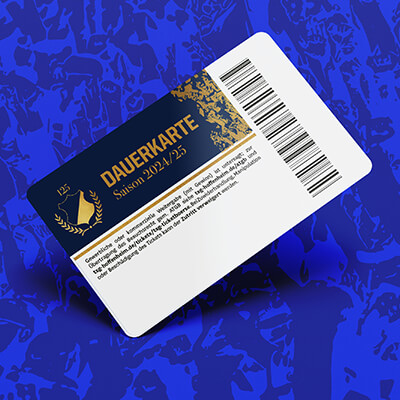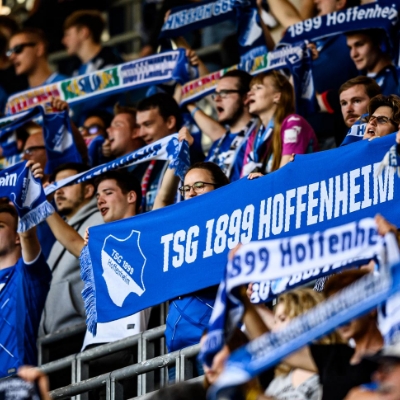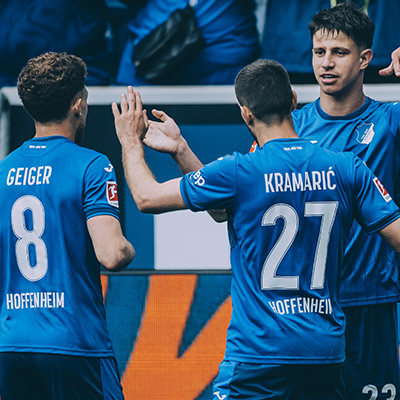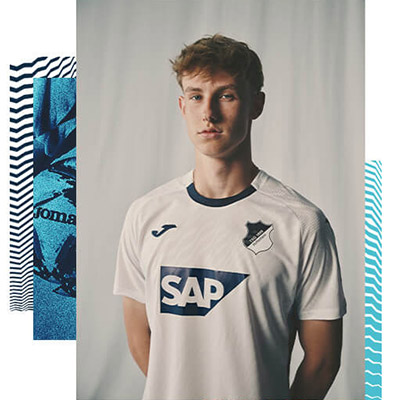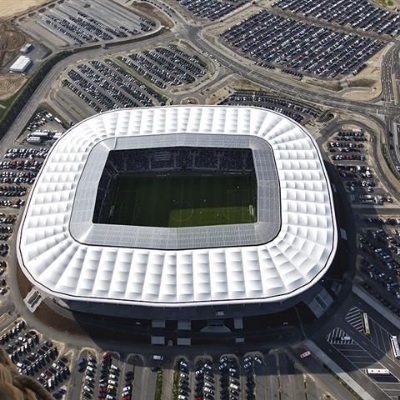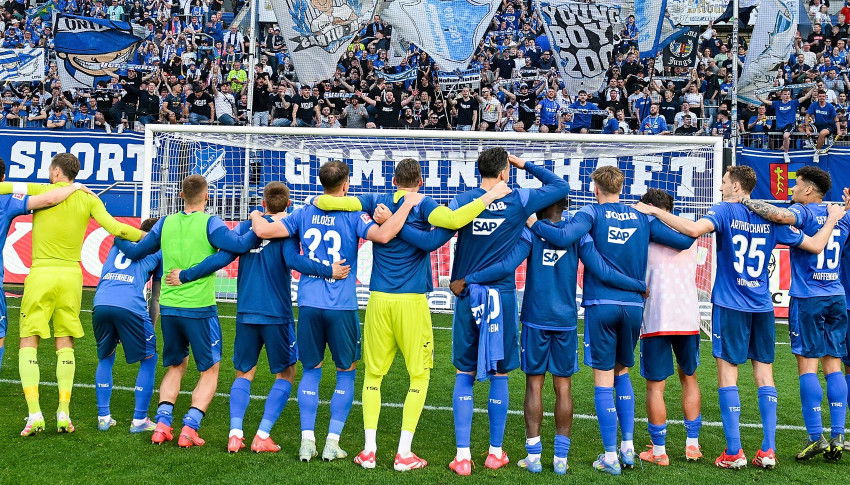Rudy: "It requires mental strength"
Sebastian, where does your love of darts come from?
"I started playing darts with my brothers four or five years ago. Before that, I had only followed it on television. We then stopped – up until the birth of my niece a little more than a year ago. We went over to my brother's house to celebrate and, well, the dartboard was still hanging up there. We hadn't played for two years and wanted to throw a few darts; then – no word of a lie – I threw a 180 on my first go (laughs). Since then, I've gotten fully back into it and play almost every day."
What is it about the sport you find so fascinating?
"The emotions are impressive. The fans like to get a bit crazy during the big competitions, and tempers can sometimes flare on stage as well. Keeping cool in those moments is a fine art. That said, things can also get pretty heated here at the training ground when Philipp Pentke and I provoke each other during our games. In addition, it's a nice feeling when you hit those small segments and notice that you're improving."
Is it more than just a pastime for you?
"Absolutely. I've also set something up at home so that I can train regularly. Whenever I take my dog out for a walk, I go through the garage where my dartboard is hanging up. Before going out, I then always throw six to nine darts. That's now become something of a ritual. When I embark upon a hobby, I always inform myself, read around and look for ways that I can improve. The stars of the scene all say that mental training is the most important thing. Staying cool at the decisive moment is certainly something that requires mental strength."
Do you have an advantage in that respect, as a professional athlete?
"You of course know how to deal with pressure situations. But it still often bubbles up inside of me (laughs). A certain level of tension is beneficial too, though; otherwise, it probably wouldn't be much fun at all."
Do you always just try to get a good score or do you also train systematically?
"There are many different good exercises that I practice and go through. I work through them and hope that I will improve my game in the process. I also always try to score a triple 20, a triple 19, a double 16 and then the bull's eye in every training session; I don't stop until then, because those are the most important segments."
What's your favourite double?
"Funnily enough, it's double 16. That of course is a very good fit with my shirt number. That's where I'm the most comfortable and I always try to leave myself with 32 to go so that I can finish the game with a double 16 throw."
How much time do you put into your darts training?
"With two children, it is of course slightly difficult to invest a lot of time in it. But when the two of them are asleep, I go down to the board for 30-45 minutes of an evening. It's not an insignificant part of my spare time, but I'd rather play darts than lounge around on my phone."
Have you ever been to the World Cup in London?
"No, unfortunately I haven't made it yet. My brothers have already been and really saw all the big names there, including Michael Van Gerwen and Phil Taylor, who is incidentally my big role model when it comes to darts. I will certainly make it along to London at some point so that I can watch the spectacle live in the audience."
So the Rudy brothers are all darts fans?
"Not only us brothers; my sister plays darts as well and even my parents have a dartboard by this point (laughs). There is even an official tournament in my hometown of Dietingen this winter, but unfortunately I'm away on holiday at the time. But my sister and one of my brothers have signed up for it and will compete there. My children sometimes watch me play; they'll definitely throw some darts too once they're old enough."
You've already alluded to the fact that you frequently play with Philipp Pentke. What level are you guys at?
"That varies. Sometimes there are legs, as we have an average score of 80 (editor's note: the top professionals at the World Cup have an average of approximately 100 points), but there are also games in which you don't hit the doubles and the average plummets very quickly. But if one of us makes a good throw, the other usually follows suit immediately; you almost always adapt to the level of the other player, whether it's better or worse. Pavel Kadeřábek sometimes plays too and Peter Geigle likes to be involved if he has time. But I play with Penne the most often; a real rivalry has emerged. We have our own darts and since we're both at a similar level, it's naturally a lot of fun and the games are very exciting. In my opinion, I'm a tad better (laughs)."
Despite your fascination with darts, you're focus is naturally still always on football. You're TSG's record appearance-maker and a club legend. What does the club mean to you?
"This is my 11th year with TSG, the club feels like home to me, that's for sure. I feel extremely comfortable here; it's just a really, really great club. I really look forward to coming here and playing football every day. I come to work with a smile on my face every day."
By your standards, however, you have played very little this season. How do you cope with that?
"It's not always easy, of course. I've consistently played a lot throughout my entire career to date. At the beginning of the season, I was always brought on as a substitute and got my playing time that way, but I've been more frequently left out since breaking my hand. That's obviously not satisfying. I always want to play, but I've also learned that in such situations you need to leave your ego behind and keep working in a focused manner. The chance will come; that's how it works in football. Quite apart from that, we want to be successful as a team so that's why I'm always fully invested, whether I'm playing or not. I give everything in every training session and want us to win our matches. If I'm on the pitch, then it's even better, but the success of the team comes above all else. I now have another chance this winter to showcase myself in our preparations. And I'll give it my all once again. I have the quality to help the team and I want to show the coach that every day."
Your contract runs out at the end of the season. Are you already thinking about what happens next?
"It's not currently on my mind; we'll sit down in the New Year and discuss what happens next. I certainly still feel in peak condition physically and can definitely play for several more years at this level. I would like to stay at TSG."
In central midfield in particular, TSG have a lot of talented, young players. Are you in demand as a mentor for them? Ultimately you have a treasure trove of experience as a German champion and an international.
"I always try to give advice, especially to the young players. Whether it's footballing matters that catch my eye or simply teaching them to have a certain level of humility. I'm not one to shout about it from the rooftops, but I definitely do try to pass on my experience."
Was there someone early on in your professional career who took you under his wing?
"I used to play with Peter Perchtold in the VfB Stuttgart second team. He was six years older than me and is now the assistant coach of the Austrian national team. He always guided me as a young player and explained things to me. That's helped me personally a great deal."
What specifically do you try to pass on to the young lads?
"Everything that I've learned. Before games when one of the younger players get the nod, I say a few words to him. 'Believe in yourself, you're an awesome player.' That gives them a good feeling and they can perhaps play with more freedom. When things don't work out from time to time, I build them up. Shouting doesn't usually help anyone much; older players can handle that better. The lads should and must make mistakes in order to improve. That's part and parcel of it all."





